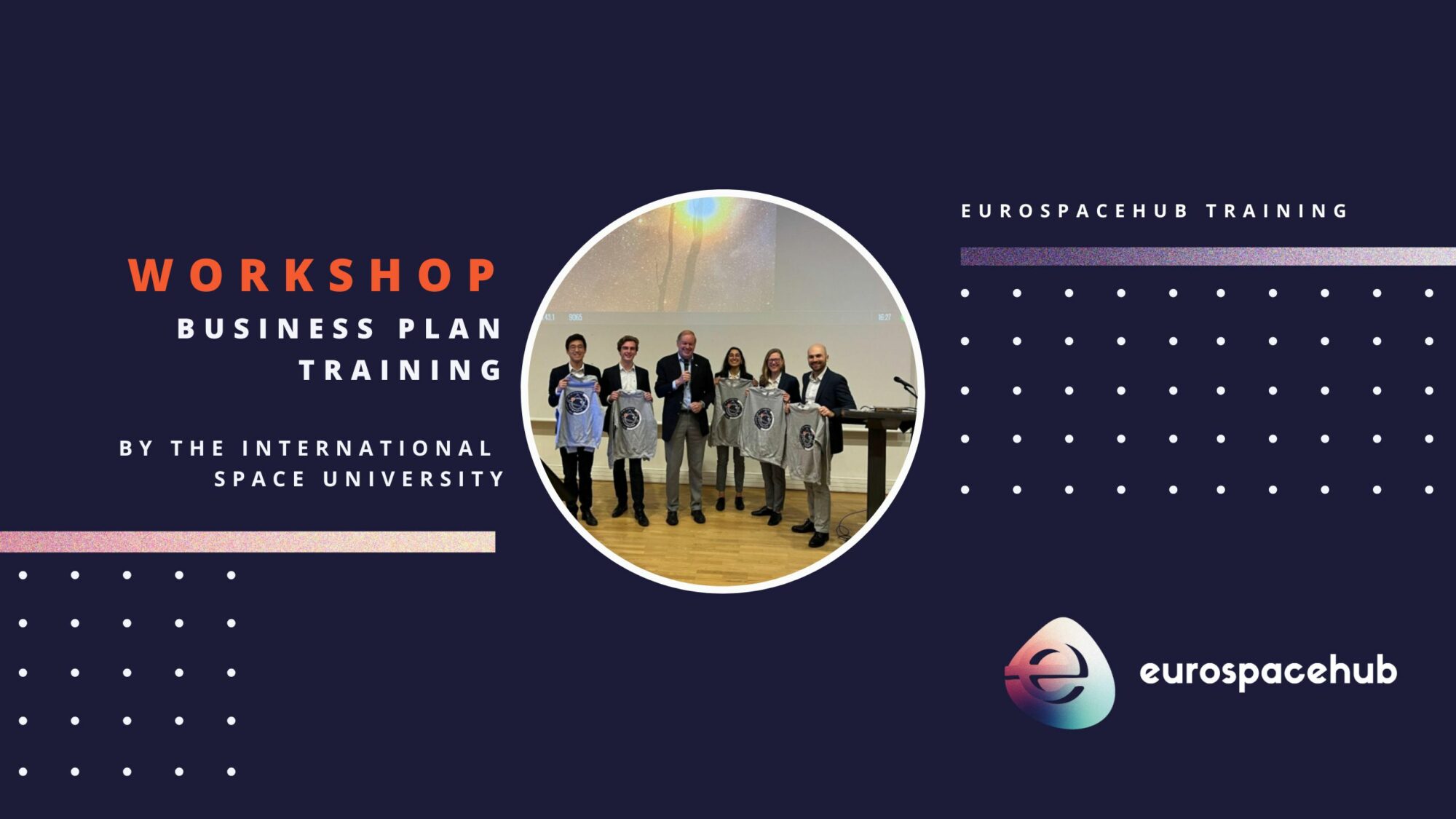EuroSpaceHub has conducted previous studies that have provided valuable insights for the implementation of the Academy trainings. In this blog article, we are excited to share an overview of a recent workshop organized in collaboration with ISU (International Space University) called “Business Plan Training.”
The studies conducted by EuroSpaceHub emphasized the importance of both technical expertise and soft skills for successful space entrepreneurs. Soft skills were found to be crucial in creating a conducive environment and achieving success. They facilitate effective teamwork, establish connections with external stakeholders, and improve entrepreneurial management processes. While hard management skills provide structure to startup projects, soft skills are essential for understanding project complexities, including technical and human factors, and comprehending dynamic business contexts.
“Business Plan Training” Workshop in a nutshell
The workshop, “Business Plan Training”, spanned over nine days and comprised 22 participants divided into four interdisciplinary teams. Participants were given the freedom to choose a downstream Space application topic for their business plan, which had to be presented as a pitch deck following a 10-20-30 concept (10 PowerPoint slides, 20 minutes presentation time, font size 30).
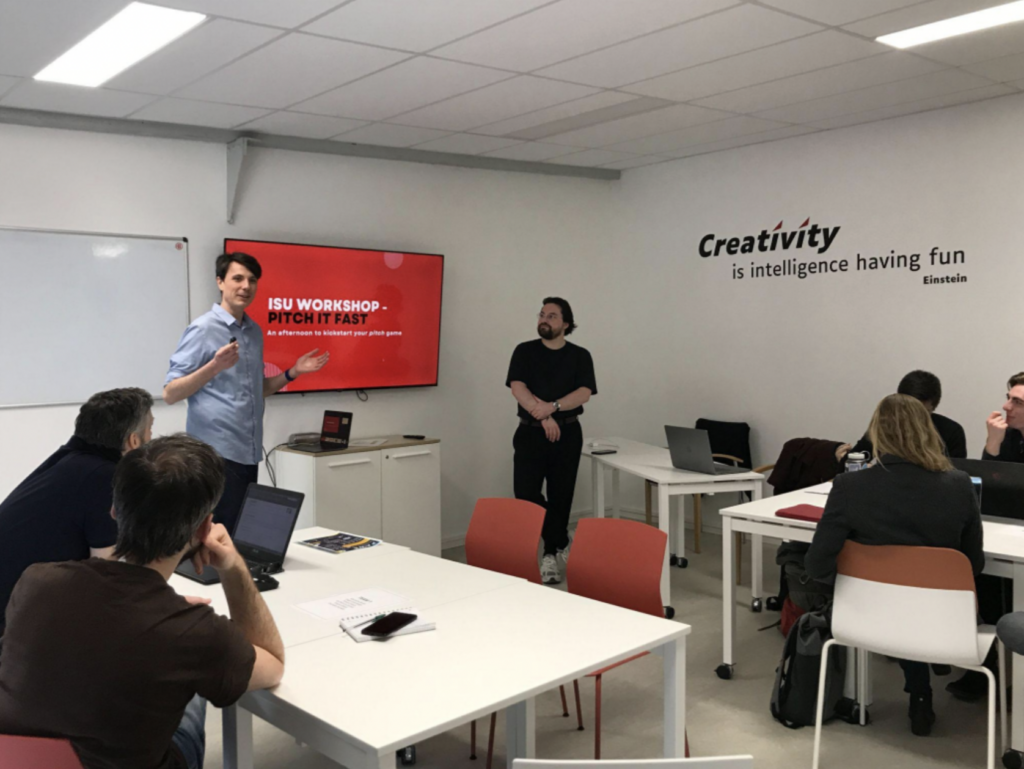
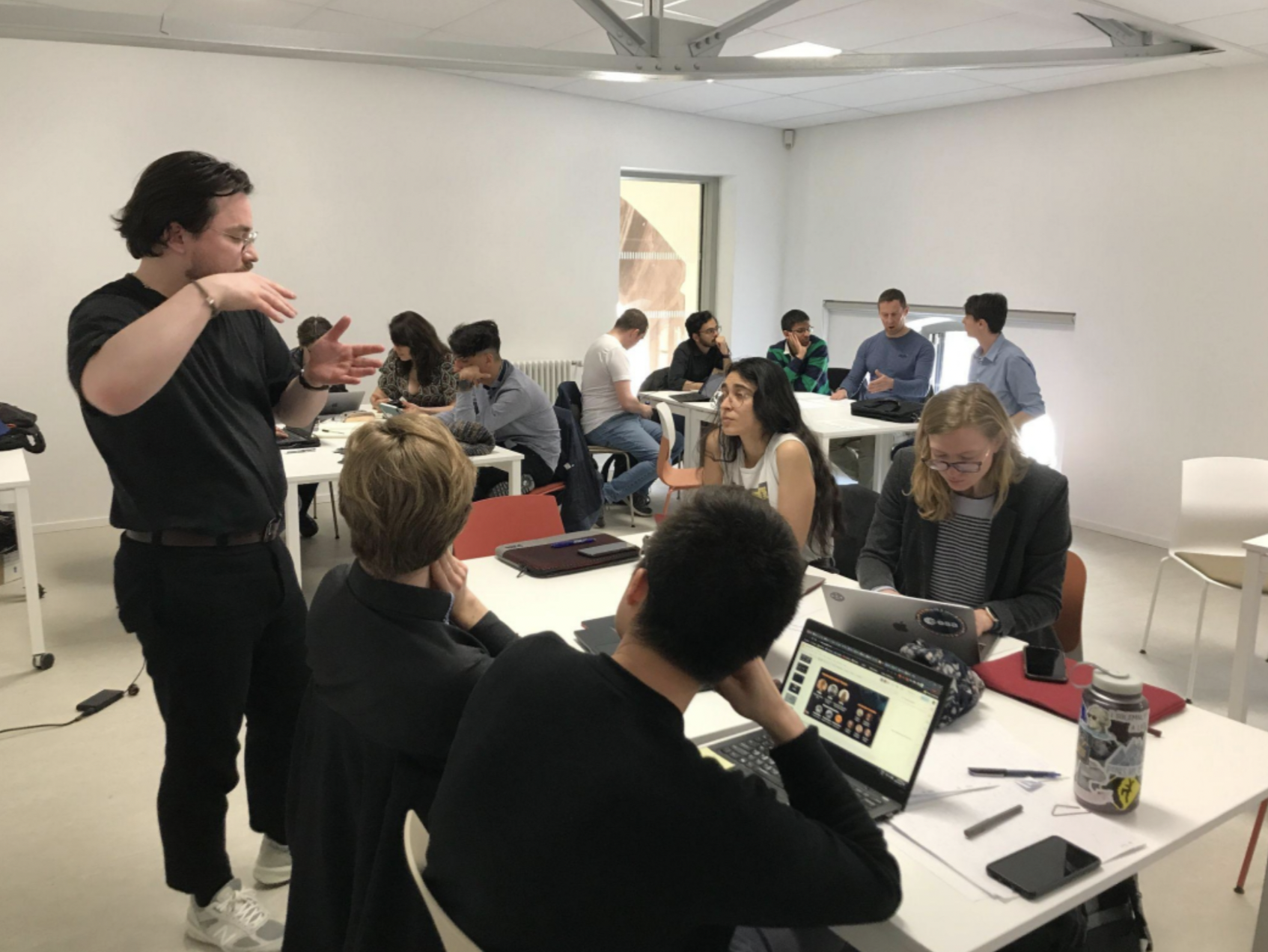
Workshop Structure
During the first week of the workshop, two moments took place. Initially, a series of basic courses and workshops were held by specialists (practically all entrepreneurs). In a second moment, participants worked in groups with the ultimate goal of developing a business idea to focus in the second week on working out the details of the business plan (such as competition, market size, market share, financial). Most of Week 2 was devoted to group work with coaching and each group was given a room to work independently. Equity investors and entrepreneurs were also invited to the workshop. The participation of experienced business angels aimed to provide insights into early-stage financing rounds. A Venture Capitalist explained how Venture Capital analysts evaluate business plans and supported each team with useful case studies. In addition, during the workshop each group benefited from useful tips and tricks to improve their presentations, communication skills and emotion coping thanks to Emotional Intelligence techniques.
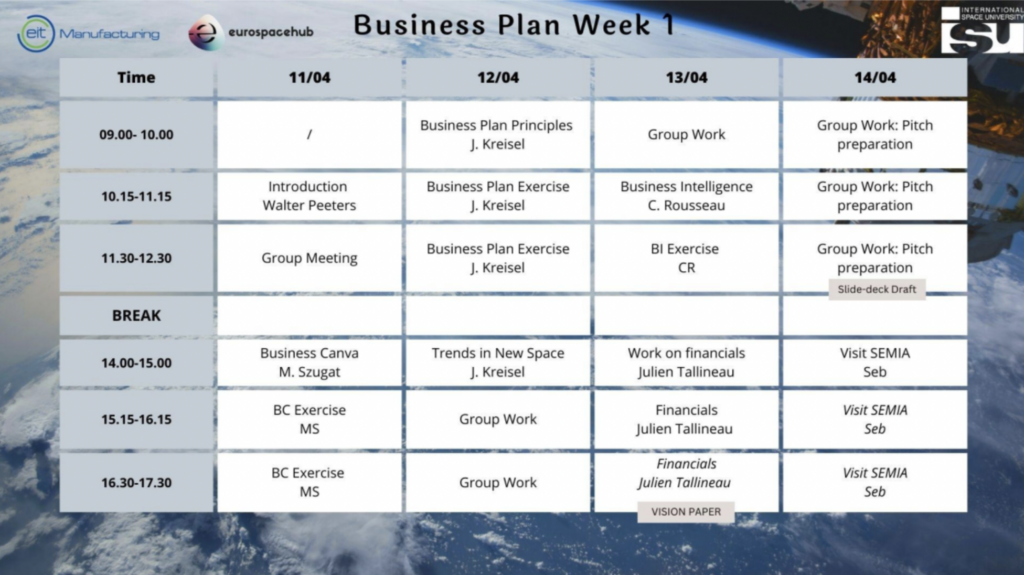
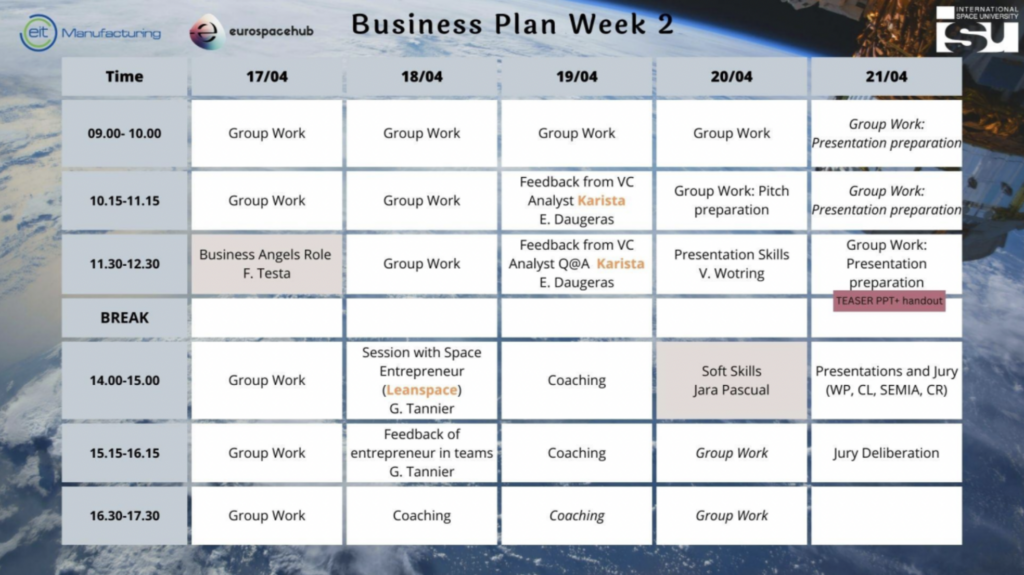
Workshop Results
The four teams presented the standard set of slides (10) at the end of the workshop in front of a mixed jury (50% Academic and 50% Professional). Since the exercise was more training-oriented and less project feasibility-oriented, scores were assigned to each group with these criteria and weights: 25% for the content of the proposal itself, 25% for the content of the 10 slides and appropriate selection of relevant data, 25% for the quality of the slides, 25% for the quality of the responses to the Q&A session.
Overall, during the Workshop the teams came up with four different Business proposals. The first responded to the problem of bee population reduction by proposing to provide better locations for hives by equipping them with sensors, monitored via space, to have optimal performance and avoid polluted areas, while monitoring the health status of the hives. The second proposal targeted the Space sector in India and stemmed from the problem that – although there are millions of engineering students in India – the NewSpace sector is advancing slowly because there is no additional NewSpace-oriented education. Building on this need, the team proposed to develop a 20-hour program of study that could start in universities oriented to the space and then be gradually extended to other universities. The third proposal stemmed from the observation that a considerable portion of the spectrum is underutilized at certain times of the year, so the group proposed a broker function to lease out these underutilized parts of the spectrum for short-term events (e.g., sports). Finally, the last proposal concerned pollution regulations (related to ESG), which are becoming increasingly strict in Europe and also indirectly affect suppliers in the delivery chain. The proposed solution was to provide inspection services using Earth observation data to detect water pollution (initially) and chemical dumping. The second proposal was declared the winner of this (fictitious competition). The proposal was considered feasible and the presentation style of the team was very appreciated by the jury.
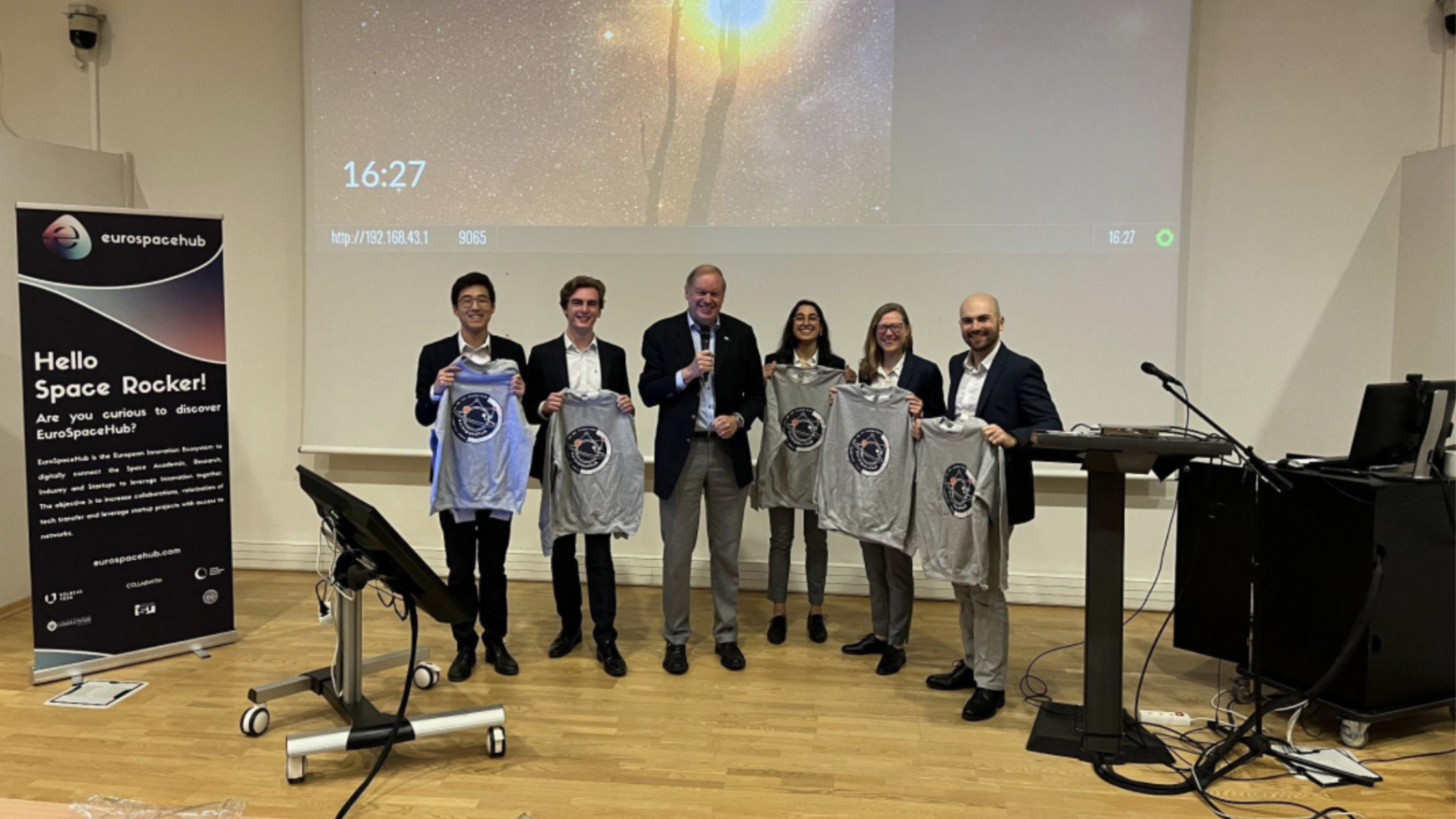
Lessons Learnt
Various feedback was sought from workshop participants to understand how to improve its dynamics for the future. The distribution between schedule and work time was found to be appropriate for the duration during the workshop. In addition, the involvement of professionals in the program as coaches was highly appreciated by participants. The presence of a panel of professional investors was appreciated to receive constructive and concrete feedback, and the importance of soft skills was evident throughout the session. In general, more workshops would be helpful for enhanced application of the knowledge gained. Summarizing the main lessons learned, we highlight the following. In the next iteration, teams will be pre-formed to streamline the process. To avoid conflicting information, there will be more coordination among the teams. The panel will include more equity investors. The sequence of lectures and workshops will be refined to improve their effectiveness. Finally, the study of intellectual property rights (IPR) will be given in-depth attention and research.
In conclusion, the workshop provided valuable lessons for future iterations. By incorporating these lessons, EuroSpaceHub aims to further optimize their training programs and empower space entrepreneurs with the skills and knowledge needed for success in this competitive industry.

